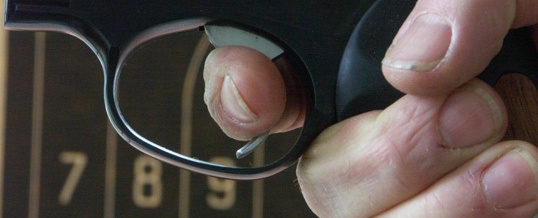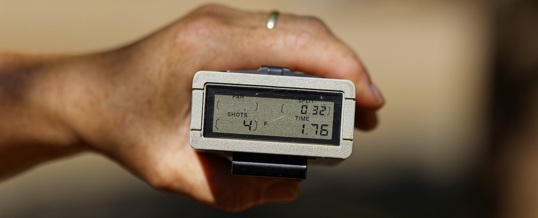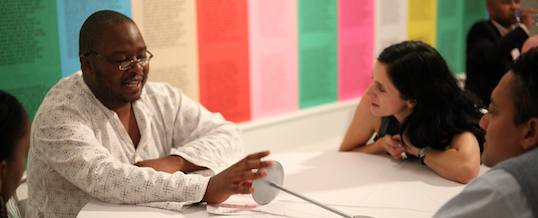
Do you want to be a better shooter or a better defender?
I received quite a number of emails, blog comments and social media interaction about Friday’s topic, “Meaningless increments of precision.”
A large percentage of them asked questions or made statements which revealed that the person was fixated on the notion that becoming a better shooter makes or keeps someone safer. This is going to sound strange coming from a “gun guy”, and it’s going to make a lot of gun guys (and gals) mad, but that’s a really bad notion.
Because becoming a better shooter won’t make you safe; becoming a better defender will.
The last option
I’ve said this many times, but it bears repeating: the lawfully carried defensive firearm is a special purpose tool for a very small percentage of interpersonal conflicts. For most of us, the number of times in our lives when we might legitimately need to use our gun to defend ourselves and our family may be less than one. Of course for that one time it’s not only the most efficient tool, it might be the only tool which can guarantee our continued health and wellness. It’s not my intention to downplay the role of the firearm, just to put it into perspective: it is properly thought of as the tool of last resort, because if you use it your life is going to change dramatically. Use it improperly, and your life (as you know it) may even come to an end.
For all of the rest of the interpersonal conflicts you’ll have over your lifetime, those for which lethal force is not an acceptable solution, something other than the gun is likely to be necessary. How have you trained to deal with those? Have you trained, and do you regularly practice, avoiding and preventing attacks in the first place? Lots of violent incidents begin as shouting matches; do you understand how to de-escalate when someone is in your face?
Everything else comes first
Let’s jump out of the idea of being attacked by a bad guy; if we look at self defense in a wider context — the context of personal security — other important things come into view. You’ve heard me preach the value of knowing emergency trauma response, because life-threatening accidents do occur on a daily basis. How about defensive driving skills? How about giving some thought to self preservation through physical health?
I want you to try a visualization exercise: picture yourself from a drone’s-eye view pointing your defensive handgun on a bad guy. Now start to zoom out, showing other people having non-lethal but violent interactions. Zoom further out to see people merely having heated arguments, then further to see some fatal car accidents. At the regional zoom level see all the graveyards of people who died from preventable health issue; at the continental level see bad weather and how it threatens the safety of everyone in its path. At the global level? Drought, wars, epidemics…the list of things that threaten our existence is almost endless.
Did your awesome shooting ability in the close-up view affect any of those other things at the global level in the slightest? Of course not. That’s because your defensive firearm doesn’t make you any safer, in the sense that it keeps bad things from happening to you. It simply gives you an efficient tool to respond when the situation warrants the use of lethal force.
Keep the real goal in mind
Becoming a better defender should be everyone’s goal. Achieving that means not only understanding what you need to study and practice, but also how deeply to go into any given area of interest to maximize your defensive capabilities — while at the same time making the most efficient use of your limited preparation resources (time, energy, and money.) In other words, you need to know what to do but you also need to know how much is enough.
This is what so many avid shooters just don’t understand. Even if we’re talking about a discrete set of skills, like defensive shooting, knowing when you’ve gotten to an optimum level and should shift your time, energy, and money to doing something else is the key to becoming a better defender. There is such a thing as “enough” in everything, including defensive shooting skills (but no one in the training business is ever going to admit that because they have mortgages and staff to pay.) Chasing meaningless increments of precision, for the sake of the chase, is a hobby unto itself that consumes resources out of proportion to their real utility.
I’m all for hobbies and heartily encourage recreation. I’m not in favor of rationalizing those hobbies by pretending that they have some ill-defined and -understood connection to the goal of making you and your family safer.
— Grant Cunningham
LISTEN to this blog post!
- Posted by Grant Cunningham
- On October 3, 2016



